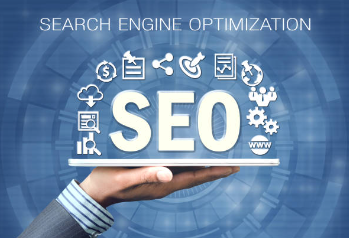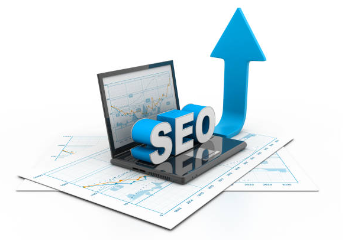Advantages and Disadvantages of SEO
( SEARCH ENGINE OPTIMIZATION )
What is SEO?
SEO, or Search Engine Optimization, is a marketing strategy that improves your website's visibility and ranking on search engines like Google. By using keywords, creating high-quality content, and making your website easy to navigate, you can increase your chances of appearing higher in search results and attracting more visitors. SEO also involves link building and technical optimization to improve your website's authority and credibility. With the right strategy, SEO can help you drive more traffic and revenue for your business.
What we understand in this article
- 13 Advantages of SEO
- 13 Disadvantages of SEO
- Conclusion
- FAQs
13 Advantages and 13 Disadvantages of SEO
Advantages of SEO ↓
1. Gains the trust of customers
When you use SEO, it helps customers trust your website more. They feel like your site is reliable and has good information. It's like when you find a shop in your neighborhood you trust to always have what you need.
2. Measurable results
"Measurable results" means that you can track and see the outcomes of your SEO efforts. It's like being able to measure how well your website is doing in search engines and knowing if your strategies are working or not.
3. Increased visibility and traffic
SEO makes your website easier to find in search engine results. This means that when people search for things related to your website, they're more likely to see it. When your site shows up higher in search results, more people click on it, which brings more visitors to your site. This not only helps more people learn about your brand but also makes your business seem more trustworthy. Plus, when you use specific SEO tactics, you can attract people who are already interested in what you offer, which can lead to more sales and help your business grow.
4. Cost-effectiveness
SEO is a way to get good results without spending a lot of money. Unlike regular ads, SEO can give you a lot of benefits without costing too much. With SEO, you work on making your website better so it shows up higher in search results. This means you don't have to pay every time someone clicks on your website like you would with ads. Even though there might be some initial costs, like hiring an SEO expert or buying tools, the benefits of SEO in the long run outweigh these costs. Once your website starts doing well in search results, you can keep getting visitors without having to keep paying for ads, making SEO a smart investment for your business.
5. SEO makes authority in your Niche
When your website keeps showing up at the top of search results for certain topics because of SEO, it helps establish your expertise in that area. People trust your site more because they see it as a reliable source of information. This makes your brand seem like a leader, which brings in more visitors looking for helpful content. It also makes other respected websites more likely to link back to yours. As your brand's reputation grows through these efforts, you'll see more people visiting your site, more interaction from visitors, and ultimately, more sales.
6. Increases small business revenues
Implementing effective SEO strategies can boost profits for small businesses. By making your website more visible in search engine results, you can attract more potential customers who are actively looking for products or services like yours. This increase in visibility and traffic can lead to more sales and conversions, ultimately boosting your business revenues. Additionally, because SEO is a cost-effective marketing strategy with long-term benefits, the return on investment (ROI) can be significant for small businesses, helping them compete more effectively in their market.
7. Targeted audience reach
SEO helps connect your website with the people who are most likely to be interested in what you offer. By optimizing your website content and keywords, you can make sure that your site shows up in search results when people are searching for things related to your business. This focused approach helps you reach potential customers who are already interested in your products or services, making it more likely that they'll become paying customers. By using SEO to reach the right audience, you can make your marketing efforts more effective and get better results for your business.
8. Long-term results
The positive outcomes of your SEO efforts can last for a long time. Instead of just getting a quick boost in website traffic, SEO helps your site stay visible and attract visitors consistently over an extended period. By regularly improving your website and its content to match what people are searching for, you can maintain good rankings in search results. This steady flow of visitors can lead to ongoing business growth and success. So, with SEO, you're investing in results that stick around for the long haul.
9. Improved user experience
Improving user experience means making your website better for the people who visit it. With good SEO, you not only make your site show up higher in search results but also focus on making it easier and more enjoyable to use. This could involve things like making sure your site loads quickly, organizing content clearly, and making it easy to find what people are looking for. When visitors have a good time on your site, they're more likely to stay longer, read more, and maybe even buy something. And when people like your site, search engines tend to like it too, which can help your site rank even higher.
10. Increased website usability
Improving website usability means making your website easier and more intuitive for visitors to navigate. With effective SEO, you not only aim to enhance your website's visibility in search results but also prioritize enhancing the overall user experience. This involves designing your site to be easy to navigate, ensuring information is well-organized and readily accessible, and optimizing page loading times. When your website is user-friendly, visitors can find what they're looking for quickly and easily, leading to higher levels of engagement and satisfaction. Ultimately, a better user experience can contribute to improved search engine rankings and greater success for your website.
11. SEO helps in your business growth
Using efficient SEO techniques may help your business grow and succeed. By optimizing your website to rank higher in search engine results, you can attract more potential customers, boost brand visibility, and drive increased traffic to your site. This enhanced online presence can result in more leads, conversions, and ultimately, higher revenue for your business. Moreover, because SEO is a long-term investment that consistently delivers results over time, it plays a vital role in sustaining and accelerating your business growth in the competitive online market.
12. Mobile Friendly
A "mobile-friendly" website means it's designed and optimized to work well on mobile devices like smartphones and tablets. Since more people use mobile devices to browse the internet, having a mobile-friendly site is crucial for giving visitors a good experience. This means making sure your website layout, content, and features are easy to use on smaller screens. A mobile-friendly site might have things like responsive design and navigation that's easy to use on a phone. Having a mobile-friendly site not only makes visitors happier but also helps your SEO because search engines like Google prefer sites that work well on mobile devices.
13. Generates ROI
Implementing SEO strategies can lead to a positive outcome for your business, where the benefits outweigh the costs. In simpler terms, the time and resources you invest in making your website better for search engines can result in increased profits or savings. This might include earning more money from increased website visitors, spending less money to get new customers compared to traditional ads, or having more people know about and trust your brand, which helps your business grow in the long run. By looking at how much you gain from your SEO efforts compared to what you spent, you can see if your strategy is working well for your business.
Disadvantages of SEO ↓
1. SEO takes time
Getting good results from your SEO efforts can take a long time and a lot of patience. Unlike some ads that work right away, SEO is a slow process. You have to make your website better, create good content, and earn people's trust over time. It might take weeks or even months to see your website move up in search results and get more visitors. Plus, because SEO rules and competition change all the time, you have to keep working on it to stay ahead. Even though SEO can bring big benefits eventually, it's important to be patient because it takes time and effort to see results.
2. High-competition keywords are tough to crack
It can be hard to get your website to show up high in search results for popular keywords that lots of other websites are also trying to rank for. These keywords are really competitive, which means lots of websites are working hard to get their content to show up at the top of search results. Breaking through this competition and getting your website to rank well for these keywords takes a lot of effort, time, and money. You might need to create really great content, get links from other trusted websites, and keep improving your SEO tactics to stand out from the crowd. While targeting these competitive keywords can bring in a lot of visitors and make your website more visible, it's important to know that it's not easy to get to the top of search results for these keywords.
3. SEO needs a big investment in the competitive niche
In highly competitive industries or niches, succeeding with SEO often requires a big financial investment. Many businesses are fighting for the top spots in search results, which means you need to invest more money in aggressive SEO strategies. This might include spending a lot on things like researching keywords, creating content, building links, and constantly improving your website to keep up with your competitors. You might also need to invest in tools, technology, and experts to run complex SEO campaigns effectively. While SEO can bring in great results, especially in competitive markets, businesses need to be ready to invest a lot to see meaningful outcomes.
4. Algorithm Change
"Algorithm change" means when search engines like Google make updates to how they decide which websites to show first in search results. These updates can really shake things up, affecting how popular and visible websites are. Sometimes, a website that used to be at the top of search results might suddenly drop down, and others might move up. To deal with these changes, website owners and SEO experts need to keep an eye on what's happening and adjust their strategies to make sure their site still shows up well in search results.
5. SEO has no guarantee for 1st-page rankings
Getting your website to consistently appear on the first page of search results isn't always guaranteed, even if you put a lot of effort into optimizing it. Search engine algorithms are complex and always changing, and there's a lot of competition out there. While good SEO strategies can help your website show up higher in search results, there are many factors that can affect where your site ranks. Things like changes to the rules, what your competitors do, or how people search online can all play a role. Plus, even if you do get your site to show up on the first page, you have to keep working to make sure it stays there. So, it's important for businesses to understand that ranking high in search results isn't always guaranteed, and there can be ups and downs along the way.
6. Requires ongoing effort and updates
SEO isn't something you do once and forget about. It's a job that needs regular attention because things are always changing. Search engines keep updating their rules, and other businesses keep trying new things, so you have to keep up. That means adding new stuff to your website often, checking how well it's doing, seeing what your competitors are doing, and changing your SEO strategy when you need to. By keeping your website up-to-date and paying attention to what people are looking for, you can make sure it stays important and keeps bringing in visitors, helping your business grow.
7. Dependence on Search Engine Algorithms
The success of your website's visibility and ranking in search results relies heavily on the algorithms used by search engines like Google. These algorithms determine how websites are indexed, ranked, and displayed in search results based on various factors like relevance, quality, and user experience. As a result, changes or updates to these algorithms can have a significant impact on your website's performance in search results, potentially affecting its visibility, traffic, and overall success. Because search engine algorithms are complex and constantly evolving, website owners and SEO professionals must stay informed about algorithm changes and adapt their strategies accordingly to maintain or improve their website's rankings and visibility over time.
8. Difficulty in measuring ROI
"Difficulty in measuring ROI" refers to the challenge of accurately assessing the return on investment (ROI) of your SEO efforts. Unlike some forms of marketing where results can be easily quantified, such as tracking sales from a specific advertising campaign, determining the precise impact of SEO on your bottom line can be more complex. SEO involves various tactics and strategies aimed at improving your website's visibility and attracting organic traffic, but it can be difficult to attribute specific outcomes directly to your SEO efforts. Factors like changes in search engine algorithms, market trends, and user behavior can all influence the results of your SEO initiatives, making it challenging to isolate the effects of SEO on your business's overall performance. While tools like Google Analytics can provide insights into website traffic and engagement metrics, accurately measuring the ROI of SEO requires careful analysis and consideration of multiple factors beyond just website visits or rankings.
9. Competition and saturation
In some industries or niches, there's a lot of competition, which can make it tough for businesses to succeed with SEO. When there are many businesses all trying to get attention and rank high in search results, it can be hard to stand out. This can especially be a challenge for new or smaller businesses trying to compete with bigger, more established ones. As more businesses join the market, it becomes even harder to get noticed, and you might not see as much benefit from your SEO efforts. So, businesses in these competitive industries may need to come up with more creative or targeted SEO strategies to do well despite the tough competition.
10. Get ready to create bulk content
You may need to produce a large volume of content for SEO purposes. In competitive online environments, where many businesses are actively optimizing their websites to improve search engine rankings, generating a substantial amount of high-quality content can be crucial for staying relevant and competitive. This could involve creating blog posts, articles, product descriptions, videos, and other types of content that are relevant to your target audience and optimized for relevant keywords. By consistently publishing fresh and valuable content, you can enhance your website's visibility, attract more organic traffic, and engage with your audience effectively. However, creating bulk content requires significant time, effort, and resources, so it's important to develop a content strategy and workflow that allows for efficient content creation and publication.
11. Rankings Are Lost
When your website drops down in search engine results, it means it's not as visible and gets fewer visitors. This can happen because of changes in search engine rules, more competition, or technical problems with your website. Losing these positions can hurt your website's performance, leading to fewer visitors, interactions, and sales. To avoid this, keep an eye on how your website is doing, stay updated on changes to search engine rules, and fix any problems that might make your website rank lower. Also, using good SEO strategies and keeping your website's content and structure in good shape can help you maintain or even improve your rankings over time.
12. Black hat practices will make Google penalize you
Engaging in black hat practices can get your website penalized by Google. These practices are sneaky tactics people use to try to boost their search engine rankings quickly, but they go against Google's rules. They might stuff their content with keywords, hide text or links, buy links from other sites, or make low-quality content. While these tricks might give a website a short-term boost in search results, Google can catch on and penalize the site. This could mean it gets shown to fewer people or even removed from search results entirely. It's best to stick to Google's rules and use ethical, white-hat SEO strategies to build a website that'll stay visible and successful in the long run.
13. SEO is not profitable in the beginning
Starting out with SEO may not bring in money right away. It's a strategy that takes time and effort to pay off. At the beginning, you'll need to spend time and maybe some money on things like figuring out the best keywords, creating good content, making sure your website is set up well, and getting other websites to link to yours. But even after doing all this work, you might not see a big increase in profits right away. It takes time for search engines to notice your website and rank it higher, and even longer to become a trusted source in your industry. However, as your website gets more visible, brings in more visitors, and turns them into customers, the investment you put into SEO can pay off big time. So, even though SEO might not give you immediate results, it's worth it in the long run for building a website that'll keep bringing in customers and growing your business.
Conclusion
In conclusion, SEO, or Search Engine Optimization, has both advantages and disadvantages for businesses. On the positive side, SEO can build trust with customers, increase visibility and traffic to your website, and generate a high return on investment over time. It helps target the right audience, improves user experience, and contributes to long-term business growth. However, SEO requires patience as results can take time to achieve, especially in competitive industries. Keeping up with algorithm changes, investing in content creation, and avoiding black hat practices are essential for success. Overall, while SEO may not bring immediate profits, its long-term benefits make it a valuable investment for businesses looking to thrive online.
FAQs
1. Is SEO suitable for all businesses?
While SEO can benefit most businesses, its effectiveness depends on various factors such as industry competitiveness and target audience behavior.
2. How long does it take to get benefits from SEO?
SEO results vary depending on factors like website age, competition, and optimization efforts, but significant improvements often take several months to materialize.
3. What are some common SEO mistakes to avoid?
Common SEO mistakes include keyword stuffing, neglecting mobile optimization, ignoring technical SEO issues, and neglecting quality content creation.
4. Can I perform SEO myself, or should I join a pro?
While some basic SEO tasks can be done independently, hiring a professional SEO agency or consultant can provide expertise and ensure optimal results.
5. How can I stay updated on SEO trends and changes?
To stay updated on SEO trends, follow reputable industry blogs, attend webinars and conferences, and participate in online forums and communities.
THANK YOU FOR READ THIS ARTICLE







-01.png)

